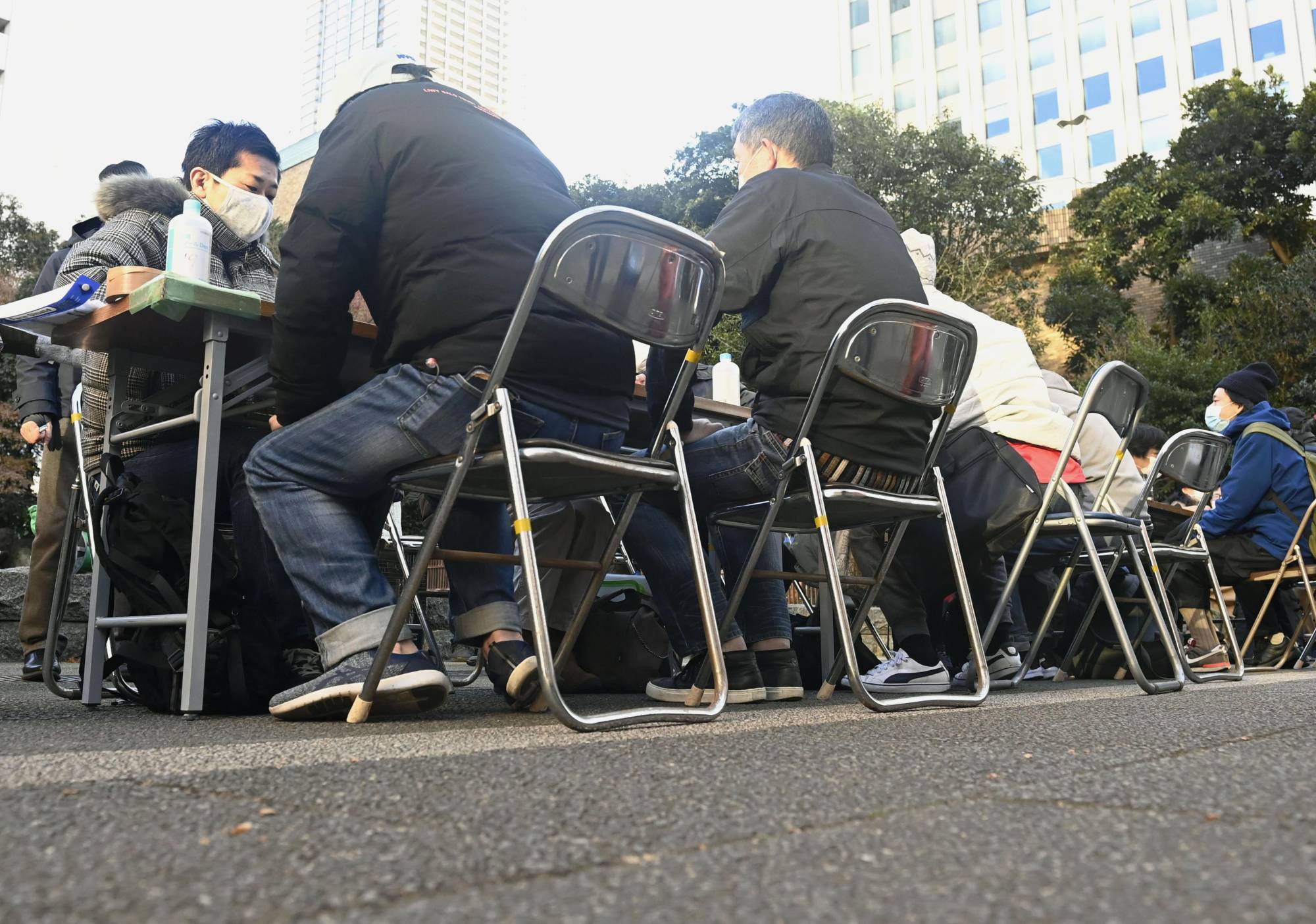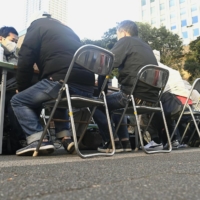Japan's government is considering another cash handout program of up to ¥100,000 each for needy households to help ease the financial strain of the prolonged coronavirus pandemic, sources close to the matter said Tuesday.
Under the envisaged plan, applicants for the new program of pandemic support would be required to meet conditions such as not possessing deposits and savings in excess of ¥1 million, but those on welfare would be excluded, according to the sources.
The government is considering providing monthly payments of ¥60,000 to single-member households, ¥80,000 to two-person households and ¥100,000 to households composed of three or more people for three months from July, earmarking ¥50 billion from the fiscal 2021 initial budget, the sources said.
The move comes as the government is considering extending its third state of emergency beyond the current end date of May 31 for about three weeks, with a fourth wave of infections triggered by highly contagious variants of the novel coronavirus showing no signs of abating.
The latest COVID-19 emergency was declared in late April and extended and expanded later, with 10 prefectures including Tokyo and Osaka now covered by its restrictive measures.
Last year, the government delivered ¥100,000 each to applicants in its blanket cash handout program for the country's 126 million residents to ease the initial economic impact of the first state of emergency from April through May.
To support households reeling from the pandemic, the government has also provided interest-free loan programs without collateral.
Mostly recently, the government decided to offer cash handouts of up to ¥50,000 per child to households in need by utilizing reserve funds for fiscal 2020.




